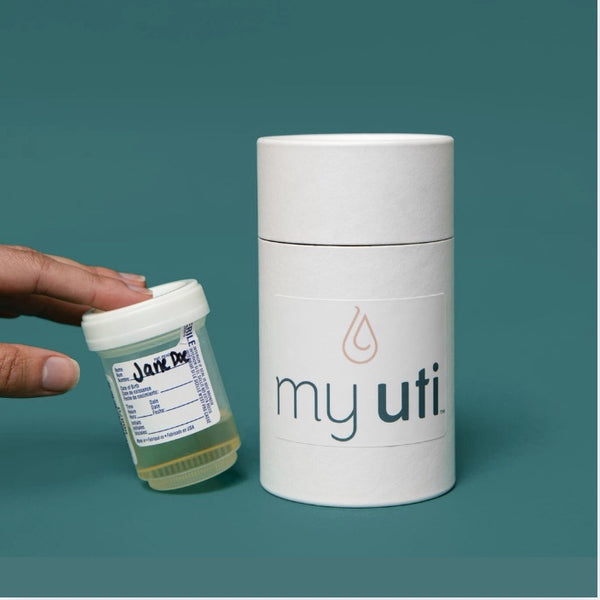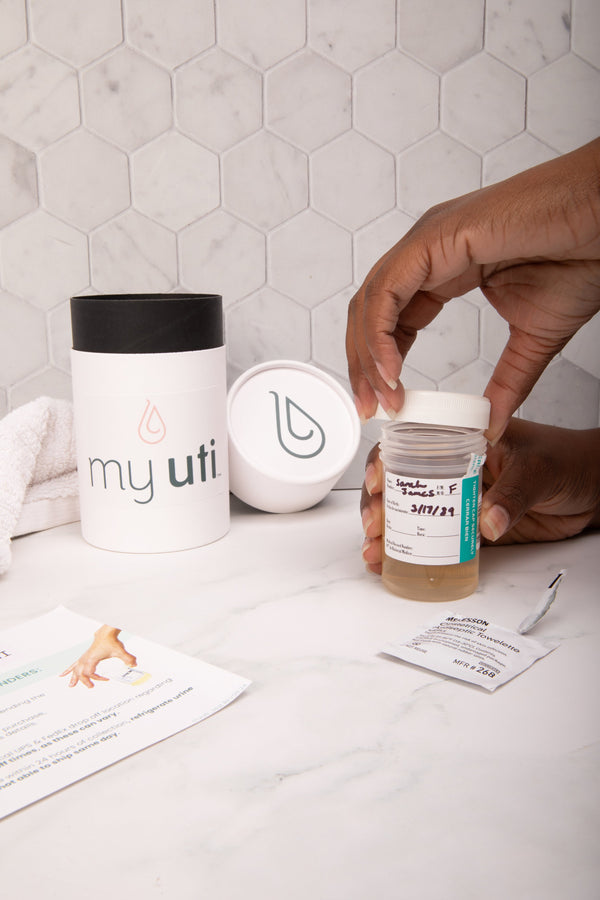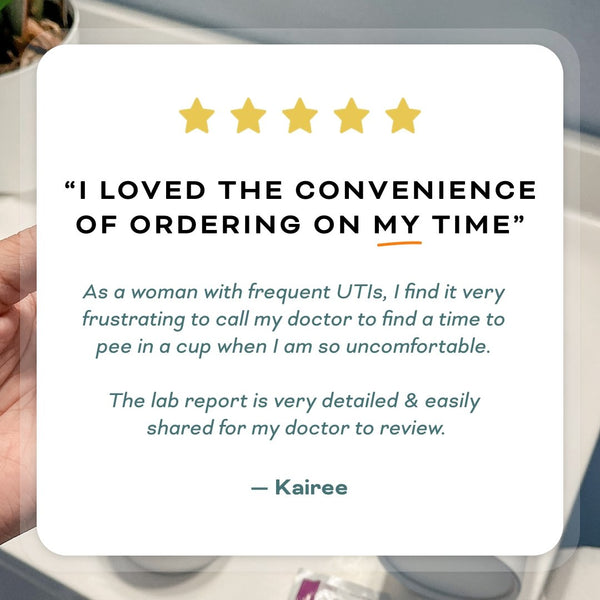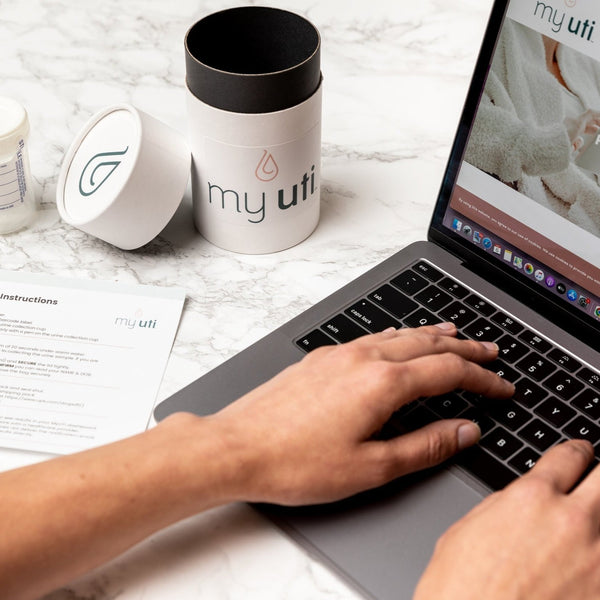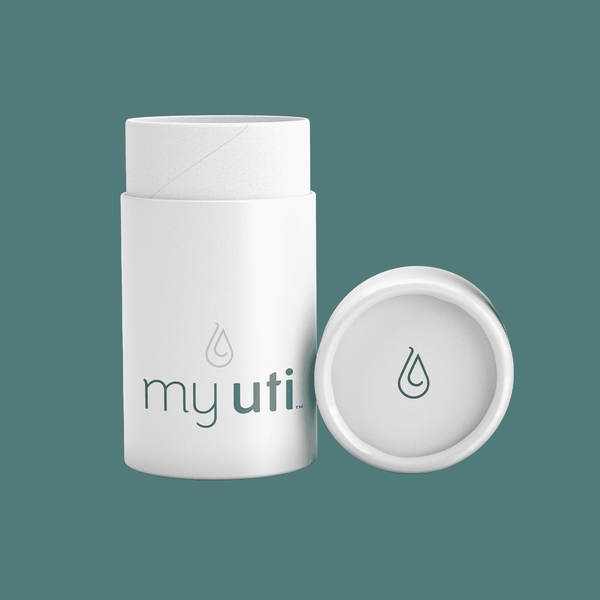Pharmacy & OTC Treatments for UTIs: What You Need to Know
Dec 15, 2023
It’s not always easy to seek medical care for a UTI. So, how can you find symptom relief with OTC (over-the-counter) medicine from the pharmacy? For this blog, we spoke with two experienced urologists, Dr Milhouse and Dr Lewis, to get their take on pharmacy & otc treatments for bladder infections. Check out the entire blog to get in-depth insights into how they work, and when to seek medical support.
What are my first steps when I have a UTI?
Your first step when you suspect you may have an infection is to find out exactly what’s causing your symptoms. Dr Lewis describes how UTI symptoms only tell us two things:
-
There are bacteria present in the urine.
-
The body is responding to infection by producing UTI-like symptoms.
However, there could be other potential causes for these symptoms such as kidney stones, gynecological or gastro-intestinal problems. So, Dr. Lewis suggests your first step should be taking a urine test (either culture or advanced testing) to confirm the presence or absence of bacteria and help direct your treatment.
Dr. Milhouse adds ‘hydration should also be a top priority when you suspect you may have a UTI’. Water is your best friend here, helping flush out your urinary tract and remove the UTI-causing bacteria.
Do UTIs always need antibiotics?
UTIs don’t always need antibiotic treatment. Some infections will resolve themselves, as long as you stay hydrated to help your body flush out the bacteria.
Dr. Lewis describes how bacteria in our urine can be transient, meaning they can come and go and could be present without symptoms of infection. She suggests that for milder symptoms, increasing your fluids could be enough.
Dr. Milhouse echos this sentiment and recommends letting our bodies try fighting infection on their own first. She adds ‘we are OVER ‘antibioticized’ in general. I personally try to avoid antibiotics with my own UTIs’.
Overuse of antibiotics can lead to antibiotic resistance. This is when bacteria evolve and become immune to treatment, often leading to more aggressive infections.
When should I seek medical support for my UTI?
Whilst UTIs don’t always require antibiotic treatment - symptoms that last more than 2 days should be investigated to properly diagnose and treat your infection.
However, Dr. Milhouse suggests if your symptoms are severe enough before this point that you feel you can’t wait - don’t delay seeking help.
Most importantly, Dr. Lewis reminds us to look out for signs of complicated infections. These include fever, weakness or inability to empty the bladder - and should be taken seriously, warranting immediate medical attention.
Pharmacy Treatments for UTIs?
Antibiotics target bacteria in the urinary tract and treat your infection at the source. However, antibiotics won’t help ease symptoms like burning, urgency, frequency and pressure immediately.
Over the counter medication found at the pharmacy can provide relief when your urinary symptoms become unbearable, helping you get on with everyday life. Whilst some over the counter medications for UTIs offer quick relief from your symptoms, others (like supplements) work more as a preventative measure against future infections.

Pharmacy Treatments for Symptom Relief:
-
Phenazopyridine (Azo)
-
Ibuprofen or Acetaminophen
OTC Treatments for Prevention:
-
Cranberry Supplements
-
D-Mannose Supplements
-
Vitamin C
-
Probiotics
Exploring OTC Solutions for UTI Symptom Relief
Phenazopyridine (known as Azo)
Phenazopyridine is most commonly known as Azo. It’s a urinary analgesic (pain reliever) that eases the burning and discomfort caused by UTIs. The exact mechanisms remain unclear - but it contains a natural dye that’s thought to reduce the nerve sensitivity in the urinary tract.
Azo provides a soothing sensation and can be taken up to 3 times per day. Dr Milhouse recommends AZO for urinary pain relief: ‘It’s what allows me to get on with my day comfortably. Without it - I’d live on the toilet in pain.’
Azo relieves symptoms like burning and urgency but does not treat the infection itself. The FDA advises against using Azo for more than 3 consecutive days without medical recommendation. So, if your symptoms persist beyond 3 days - it’s time to seek support.
Ibuprofen or Acetaminophen
Ibuprofen and Acetaminophen can be used as temporary symptom relief for UTIs, working to reduce pain and inflammation.
Ibuprofen is a non-steroidal anti-inflammatory drug (NSAID). NSAIDs work by blocking the production of prostaglandins - the neurotransmitter that tells the brain to produce pain and inflammation signals. Acetaminophen works similarly by preventing the brain from receiving those signals from prostaglandins - but does not address inflammation.
Benefits of OTC Medications in UTI Management
Cranberry Supplements
Cranberries are perhaps the most well-known UTI home remedy. Eating cranberries or drinking cranberry juice alone is not going to be an effective solution if you are trying to prevent UTIs.
Cranberries are known for containing Proanthocyanidins (PACs), which are a type of polyphenol. These PACs work by preventing certain bacteria, particularly E. coli, from adhering to the lining of the urinary tract.
This action reduces the likelihood of infection and can be beneficial in managing early symptoms. Cranberry PACs are most commonly found in supplements, and they have been widely studied for their health benefits, especially in the context of urinary tract health. Research has shows that 36mg of PACs are necessary to provide help to descrease the risk of bladder infections, so it is important to read the labels of supplements to ensure they contain ingredients to support prevention.
Cranberries can also make your urine more acidic, which helps prevent bacteria growth.
Also note — Cranberry supplements work as a preventative measure, rather than a treatment. Incorporating cranberries into your regular diet could help protect you from future infections but won’t tackle an active bladder infection.
D-Mannose Supplements
D-mannose is a natural sugar-like compound found in cranberries. It recently gained attention for its potential to prevent UTIs. As mentioned above, it does this by making it more difficult for bacteria to take hold and colonise the bladder wall. This allows the body to flush out the bacteria naturally, as long as you consume plenty of water. Similar to cranberry supplements, D-mannose works as a preventative measure rather than a treatment for an infection.
Vitamin C
Increasing your vitamin C intake helps your immune system to fight off infection. The main ingredient in vitamin C is ascorbic acid. This prevents bacteria from multiplying and gives your body an opportunity to fight back.
Probiotics
Human bodies contain billions of micro-organisms that make up communities called microbiomes. Microbiomes contain both good and bad bacteria. Infections are more likely to occur when a microbiome becomes imbalanced with an excess of bad bacteria.
The vaginal and urinary microbiomes each have a role to play in UTI risk. Taking probiotics helps boost the good bacteria and encourages your body to fight off infection naturally.
What to do if OTC UTI treatment is not working?
If you’ve been managing symptoms with over the counter UTI medication for more than 2 days with no improvement, it’s time to seek support. A healthcare provider will need to test and diagnose your urinary infection and provide antibiotics to fight the bacteria present.
For precise answers and lasting relief, the MyUTI testing kit offers detailed testing and medication recommendations for your doctor.



